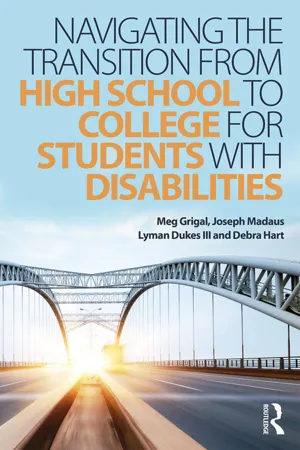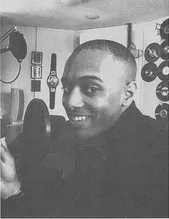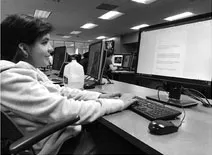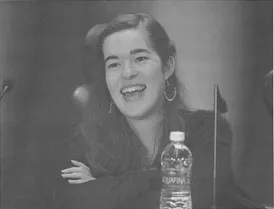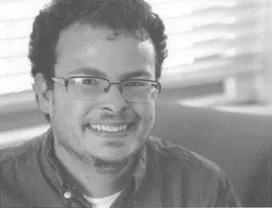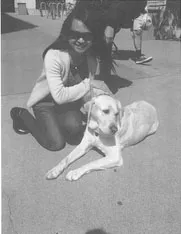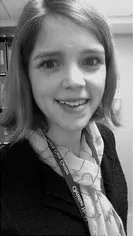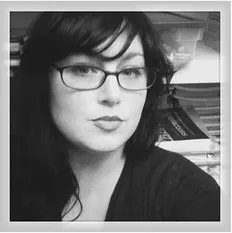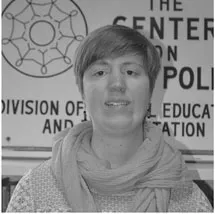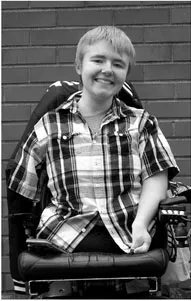![]()
Section 1
Student Experiences and Professional Expectations
![]()
1
The Lived Experiences of College Students and Recent College Graduates with Disabilities
Kim Elmore
TEXAS TECH UNIVERSITY
Hetsie Veitch
SYRACUSE UNIVERSITY
Wendy S. Harbour
ASSOCIATION ON HIGHER EDUCATION AND DISABILITY (AHEAD)
Contributors:
- Nigel Abduh
- Crystal Fike
- Kings Floyd
- Jason Harris
- Ann Wai-Yee Kwong
- Tara McFadden
- Kate Pollack
- Katie Roquemore
- K Wheeler
Author and disability services professional Mary Lee Vance has written that every college student with a disability is a “first-generation college student,” even if their parents went to college (Vance, 2007). Going to college with a disability is an incredibly unique experience, and it’s rare for students with disabilities to have disabled parents, relatives, or friends who can guide and mentor them about what to expect. At the same time, prospective college students with disabilities face what Martha Minow calls “the dilemma of difference.” If everyone focuses only on the disability and disability-related needs, then it becomes a transition process without the ups and downs of the college search process. If everyone focuses on the college search and ignores the disability, students may arrive on campus and realize it doesn’t provide the services they need. The authors and contributors for this chapter understand that the “dilemma” for students with disabilities (and their friends, family, teachers, and others supporting them) is that they’re both the same as and different from every other college student. Most of the students in this chapter convey that they needed to embrace the sameness and differences as they look back at what college taught them, focusing on the whole student experience and not only the part that relates to their disability.
At the National Center for College Students with Disabilities (NCCSD) (where the three co-authors were working when we wrote this chapter), we often encourage college students with disabilities to speak with other students with disabilities who have recently graduated or are in graduate school. When students are trying to get through the first years of college, they’re having problems, or they’re worried about the future, there’s nothing quite like getting advice from someone who has been down the same road and really “gets it.” The shared lived experiences of students with disabilities is the underpinning of this chapter.
There are several resources out there with advice about going to college, and we’ve included a list of our favorites at the end of this chapter. However, many of the resources are written by non-disabled professionals, or they are focused on parents, teachers, and disability services providers. In this chapter, the goal is to hear from students and recent graduates in their own words. As co-authors, we interviewed the contributors and made sure their stories were emphasized. We organized their thoughts and advice with students in mind – high school students thinking about college, current students in their first year on campus, and their support networks.
This chapter was prepared in close collaboration with the contributing students. With the permission of the contributors, we share a short biographical description of each student to provide some background and context to the stories they told us in March 2017:
- Nigel is a young African American musician, blogger, and college radio host who has almost finished a two-year certificate for students with intellectual disabilities (ID) at a private university in the suburban Northeast. Nigel plans to continue his college studies in English, communications, and music.
- Crystal, a black Hispanic student leader and blogger, will soon complete a two-year certificate program for students with ID at a public research university in a large northeastern city.
- Kings, a white writer and disability advocate with muscular dystrophy, worked for a year as the National Council on Independent Living Youth Transitions Fellow after graduating in English Language and Disability Studies from a private liberal arts college in the South. She has presented at the South by Southwest Conference and youth leadership summits.
- Jason, a white man on the autism spectrum, is working on his Master's degree in Education and Disability Studies at a private research university in the Northeast. He founded Jason's Connection, an online community connecting disabled people to resources and each other, and interned with the National Disability Rights Network.
- Ann, a blind Chinese American doctoral student in Education and former Gates Millennium Scholar, attends a public research university in California. She cofounded the peer mentoring organization Survive or Thrive for students with disabilities and interned with the Institute of Educational Leadership.
- Tara is completing her Master of Social Work degree at the public liberal arts and professional studies institution where she received her Bachelor of Social Work. She lives with a congenital heart defect and learning disabilities.
- Kate is a Jewish and Irish Catholic disability rights blogger who identifies as culturally Deaf with learning and psychiatric disabilities. She is completing her Master of Science in Education and Disability Studies and works at one of the few college cultural centers for students with disabilities in the United States.
- Katie, a white woman with muscular dystrophy, is a former high school Rookie Teacher of the Year who taught English and Speech and Debate in North Carolina. She is working on her Ph.D. in Education and Disability Studies at a private research university in the Northeast.
- Κ, who is a congenital amputee, is double-majoring in Law, Societies, and Justice and Disability Studies in the interdisciplinary honors program of a large Northwestern state university. Κ is Headmaster of the Harry Potter Club there and holds 3 world records in Paralympic swimming.
Some of the contributors will soon graduate, others are working, and others are in graduate school. They identify as having a disability, have been through college as a disabled student, and have had time to reflect about what worked for them or what could have been different during college.
If you are a student reading this, we hope you will feel like you’re participating in a conversation with friendly mentors sharing their stories, and we hope it inspires you to find your own mentors and community of other students with disabilities. If you are a disability resources professional, teacher, or parent, we trust that you will find tools and information that will empower you to better guide and assist students in their journey to college.
Deciding to Go to College
Some of us always knew we would go to college. Jason is an example: “I always wanted to go to college. It was kind of expected because everybody was going to college. Everyone I knew, like my sister, went to college, so it wasn’t a big deal.” K also always expected to go to college, and both parents shared this expectation although neither has a college degree. K explains:
I never thought that college wasn’t an option. It was always on my master plan. Society has a general idea that everyone should go to college, and I had that mindset. I’m pretty good at academics, so my parents always had that expectation for me, especially during my junior and senior year of high school. And the careers I was looking at [doctor, lawyer] were all very academically intense.
Like K, Kings and Katie both knew that “never going to college was not an option.” Kings started thinking early about going to college because she and her parents knew accessibility would be an issue: “My mother started the conversation with my school in sixth or seventh grade. What does a college experience look like for me? How is it similar to and different from the experiences of my peers?” Both of Katie’s parents went to college, and she was set on a college path by middle school with advanced classes. While Katie knew early that she wanted to be a teacher, Kings looked forward to college so she could “become more independent, make friends outside my bubble, and find out who I am.”
For others, college was never on the horizon, or the idea of college was vague and uncertain even when expected. Some students receive mixed messages about their ability to go to college that makes them doubt themselves at times. Although Tara grew up with family and friends who expected that she would go to college just like they did, she wondered how she would succeed with her learning disability:
Everybody from my high school was going to college, and for most of them, but not all, college was the next step. I really had no fallback plan. Both of my parents went to college, and my mom wanted me to have a college experience. At the time, though, I was not really excited about college, because with a learning disability, I was not sure how the colleges would accommodate it. Teachers were always saying college would be much harder, and taking the ACT and SATs was going to be a struggle. I wasn’t sure what I wanted to do, but at least I knew I wanted college. But the main message I got was that college was really difficult. I was never a strong writer, so that was an issue, and I worried about that going into college, trying to figure out how I would be able to crank out all the papers I’d have to write.
With a lot of “very anxious” preparation and the right accommodations for the admission tests, Tara was able to demonstrate her academic skills and get into several four-year colleges in her region. Her next concern was to figure out, with the help of her mom, which of those college environments could best support her transition into higher education.
Jason, who also has a learning disability, found the high school message for students with disabilities who wanted to attend college discouraging:
The type of schools that I went to encouraged you to go on to the next level but there was a clear message that you would need a lot of support and would not be like a normal student. They told me that I would be different and not like the other students, so the focus was on the difference and there was a negative spin on it.
Jason was also affected by his parents’ anxiety about his ability to get into college, which required him to take SATs, and to succeed if he went. He felt these high-stakes standardized tests were his most difficult hurdle to getting into college:
It was hard for me to sit in a room and take the tests for almost a whole day because I wasn’t that good at math. There were some things at the school that I was good at, but it was still very hard, the way that it is all set up. It was really hard work to get ready, to study before the time and prepare for it. I wish that there were other ways than these tests to show that you are ready for college.
While Jason made the SAT scores to attend a Midwestern four-year liberal arts college with a strong support program for students with learning disabilities, Nigel and his family were initially stumped when he did not get the SAT scores he needed to attend college. After a couple of years of searching for the right opportunity, Nigel’s father found a two-year college certificate program near his home that did not require standardized tests for admission and offered academic supports. So Nigel made the move from Atlanta to his father’s home in the Northeast. There, he had a 30-minute bus ride from the college where he could “become a better learner, find myself as a mature man, and find my strengths and weaknesses.”
In Kate’s situation, growing up in a high-poverty area and skipping school meant college wasn’t even a consideration for her. She described it in this way:
In high school, I hadn’t thought about going to college at all. I had no accommodations at my crowded city school with drugs and crime everywhere. I skipped class and hung out in the streets and hadn’t gone to school in a couple of years. I’d only thought I might become a drug addict or be in a rock band.
College only became a possibility when Kate moved to a place where others insisted it was realistic. When Kate went to a new high school in a wealthy school district, which had a deaf program and sign language interpreters, her early love of school was rekindled. Students at this school expected to go to college, but Kate would never have thought her family could afford it without specific guidance on how they might do so. One day at school, Kate got this guidance from a state vocational rehabilitation (VR) counselor with a disability:
Representatives from Gallaudet University came to give a presentation, and they said, “How many of you want to go to college?” and everyone raised their hands except me. I’m not in that demographic. I was a cashier after school and needed money for food, so it was a fantasy to think about going to college. Mom and Dad had no idea about anything academic; they were just not in that world. Somehow Access VR representative Kevin Shea also came to my high school with his service dog, and met me and my mother (and I think my resource teacher) and talked about how they would help pay for me to go to college, including tuition, books, and rent.
Being part of a community that expected youth with disabilities to continue on to higher education, and meeting experienced individuals who could help with financial and accessibility planning made college...
